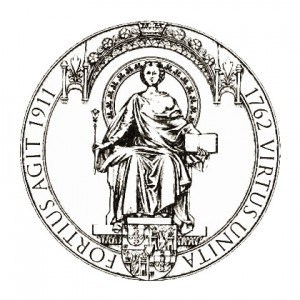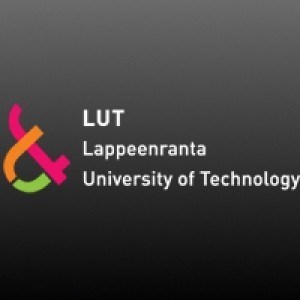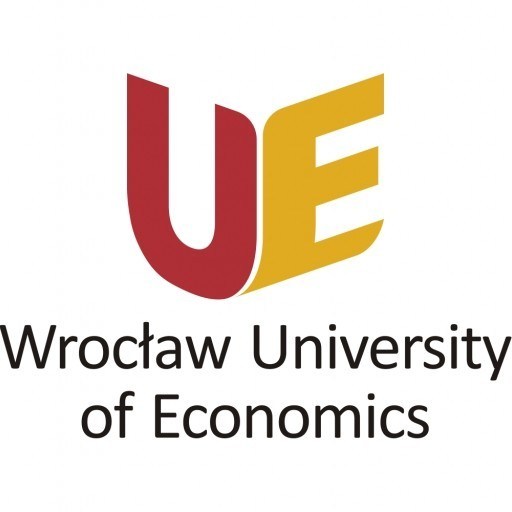Photos of university / #uporto
The Master's Degree in Finance at the University of Porto offers a comprehensive and rigorous curriculum designed to equip students with essential theoretical knowledge and practical skills necessary for a successful career in the financial sector. This program is expertly structured to provide an in-depth understanding of financial management, investment analysis, risk assessment, and financial markets. Students will explore a variety of topics including corporate finance, banking, financial econometrics, and international finance, preparing them to analyze complex financial data and make informed decisions in dynamic environments. The program emphasizes critical thinking, ethical considerations, and sustainable financial practices, aligning with current global financial trends and challenges. Delivered by experienced faculty members recognized for their research and industry expertise, the coursework combines lectures, case studies, and hands-on projects, fostering a practical learning experience. Students also have the opportunity to engage in internships, seminars, and workshops with industry professionals, enhancing their professional network and practical insights. The program aims to develop quantitative and qualitative analytical skills, effective communication abilities, and a thorough understanding of regulatory frameworks governing financial activities. Graduates will be well-positioned to pursue careers in investment banking, asset management, financial consulting, corporate finance departments, and financial regulatory agencies. The Master's in Finance at the University of Porto is committed to academic excellence and prepares students to meet the evolving demands of the global financial landscape, ensuring they are competent, innovative, and ethically responsible financial professionals.
The Master in Finance at the University of Porto offers a comprehensive and rigorous curriculum designed to equip students with advanced knowledge and practical skills in the diverse field of finance. This program aims to prepare graduates for a wide range of careers in financial management, investment banking, asset management, risk analysis, and financial consulting. The curriculum integrates both theoretical foundations and practical applications, ensuring students are well-versed in financial theory, quantitative methods, and real-world financial practices. Throughout the program, students will explore core subjects such as corporate finance, financial markets and institutions, investment analysis, portfolio management, financial risk management, and financial econometrics. The program also emphasizes development of analytical and decision-making skills, enabling students to assess financial data critically and develop innovative financial strategies.
Students have opportunities to learn through case studies, simulations, and projects that mirror real-world financial scenarios. The program benefits from experienced faculty members who are active researchers and professionals in the finance industry, providing valuable insights and current industry practices. In addition, the curriculum includes electives allowing students to specialize in areas such as financial engineering, international finance, or sustainable finance, aligning their studies with personal interests and career goals. The University of Porto fosters a collaborative learning environment, offering workshops, seminars, and networking events that connect students with industry professionals and alumni.
The teaching methodology combines lectures, seminars, and practical exercises to enhance learning engagement and skills development. Students are also encouraged to undertake internships, providing practical experience and fostering industry connections. The program culminates in a thesis or a final project, where students apply their acquired knowledge to solve complex financial problems. Graduates of the Master in Finance will possess strong quantitative and analytical skills, a solid understanding of financial principles, and the ability to adapt to the dynamic financial environment. By completing this program, students will be well-prepared to contribute effectively to financial institutions, consultancy firms, and corporate finance departments, or to pursue doctoral studies in finance or related fields.
Program requirements for the Finance Bachelor’s degree at the University of Porto include a combination of core courses, specialization modules, and practical training components. Applicants are generally required to hold a secondary education diploma or equivalent qualification recognized by the Portuguese authorities. International students must demonstrate proficiency in English or Portuguese, depending on the language of instruction, through standardized tests such as IELTS or TOEFL or by providing evidence of previous education in the respective language. The admission process also involves a review of academic transcripts and, in some cases, a motivation letter or interview to assess the candidate’s interest and aptitude for the program. Once admitted, students are expected to complete a set of foundational courses in economics, mathematics, and business principles in their first year, establishing a solid base for advanced studies.
Throughout the program, students must complete a specific number of credits across various courses, which include financial accounting, corporate finance, investment analysis, risk management, and international finance. Specialization modules allow students to focus on areas such as banking, financial markets, or financial planning, tailoring their education to specific career paths. Practical components include participation in case studies, internships, and workshops designed to develop analytical, quantitative, and communication skills necessary for the financial industry. The program also emphasizes ethical and sustainable financial practices, requiring students to engage in projects and discussions on corporate social responsibility. To graduate, students must pass all examinations, complete any required internships, and submit a final project or thesis demonstrating their ability to apply theoretical concepts to real-world financial problems. The program encourages the development of critical thinking and problem-solving skills, preparing graduates for careers in banking, asset management, consultancy, or further postgraduate studies.
The financing of the Finance degree program at the University of Porto is primarily structured through a combination of government funding, student tuition fees, and private partnerships. As a public university in Portugal, the University of Porto benefits from national educational funding that supports both the infrastructure and academic activities of the program. Tuition fees are established according to the national guidelines for higher education and may vary depending on the student’s nationality, prior educational background, and enrollment status, with distinctions often made between national and international students. International students may have higher fees, which are set by the university in compliance with Portuguese legislation and European regulations.
In addition to tuition, students can access various scholarship and grant opportunities provided by the university, the Portuguese government, and the European Union. These financial aids aim to promote accessibility and inclusivity within the program, especially for students with outstanding academic records or financial need. Scholarships may cover partial or full tuition fees and sometimes include allowances for living expenses, depending on the criteria and availability.
The university also maintains partnerships with private sector companies and financial institutions, which sometimes offer sponsorships, internships, and financial support programs for students pursuing Finance. These collaborations provide practical training opportunities and financial assistance, reducing the overall cost burden on students while enhancing their employment prospects.
Moreover, the university encourages students to seek external funding sources, including European programs such as Erasmus+ for exchange placements, which can include mobility grants that assist with travel and living costs during study abroad periods. The university's financial office offers guidance and support in applying for these funding opportunities.
For students enrolled in the Finance program, the university offers flexible payment plans and financial counseling to manage tuition payment deadlines effectively. The university also promotes lifelong learning opportunities and part-time employment options through its career services, helping students to finance their studies while gaining practical experience.
Overall, the financing framework for the Finance program at the University of Porto reflects a comprehensive approach that combines public funding, student contributions, scholarships, private sponsorships, and external funding to ensure that students have access to quality education without undue financial hardship. This multi-source funding model aims to sustain the program’s excellence and support the diverse needs of its student body, fostering an environment conducive to academic success and professional development.
The Master’s degree in Finance at the University of Porto is a comprehensive postgraduate programme designed to equip students with advanced knowledge and skills in finance, financial management, and the broader economic environment. This programme aims to prepare graduates for successful careers in banking, investment, financial analysis, corporate finance, and financial consultancy. The curriculum offers a balanced combination of theoretical foundations and practical applications, including courses in financial analysis, investment management, risk management, financial markets, and international finance. Students have the opportunity to develop strong quantitative and analytical skills necessary for evaluating financial data, making informed decisions, and understanding global financial markets.
The programme emphasizes the development of critical thinking, problem-solving abilities, and effective communication skills, all of which are essential for roles within the financial sector. Students benefit from a multidisciplinary approach, integrating concepts from economics, accounting, and management to provide a well-rounded understanding of finance's role in business and society. The faculty comprises experienced academics and professionals in the finance industry, enriching the learning process with insights into current market trends and industry practices.
The Master’s in Finance at the University of Porto also offers opportunities for practical learning through internships, workshops, and case studies, helping students to apply theoretical knowledge to real-world situations. The programme collaborates with local and international companies, providing students with valuable networking opportunities and potential employment pathways upon graduation.
Additionally, the programme supports students’ development through seminars, guest lectures, and participation in finance-related conferences. The university’s strong connections with the financial sector facilitate the integration of students into the professional world and enhance their employability. Graduates of the programme typically find employment in financial institutions, corporate finance departments, consulting firms, or pursue further academic research. Entry requirements generally include a relevant undergraduate degree, proficiency in English, and a motivation to succeed in a dynamic and competitive environment.
Overall, the MSc in Finance at the University of Porto offers a rigorous and practical education designed to meet the demands of the global financial industry, fostering the professional growth of its students and preparing them for successful careers in various financial sectors.










